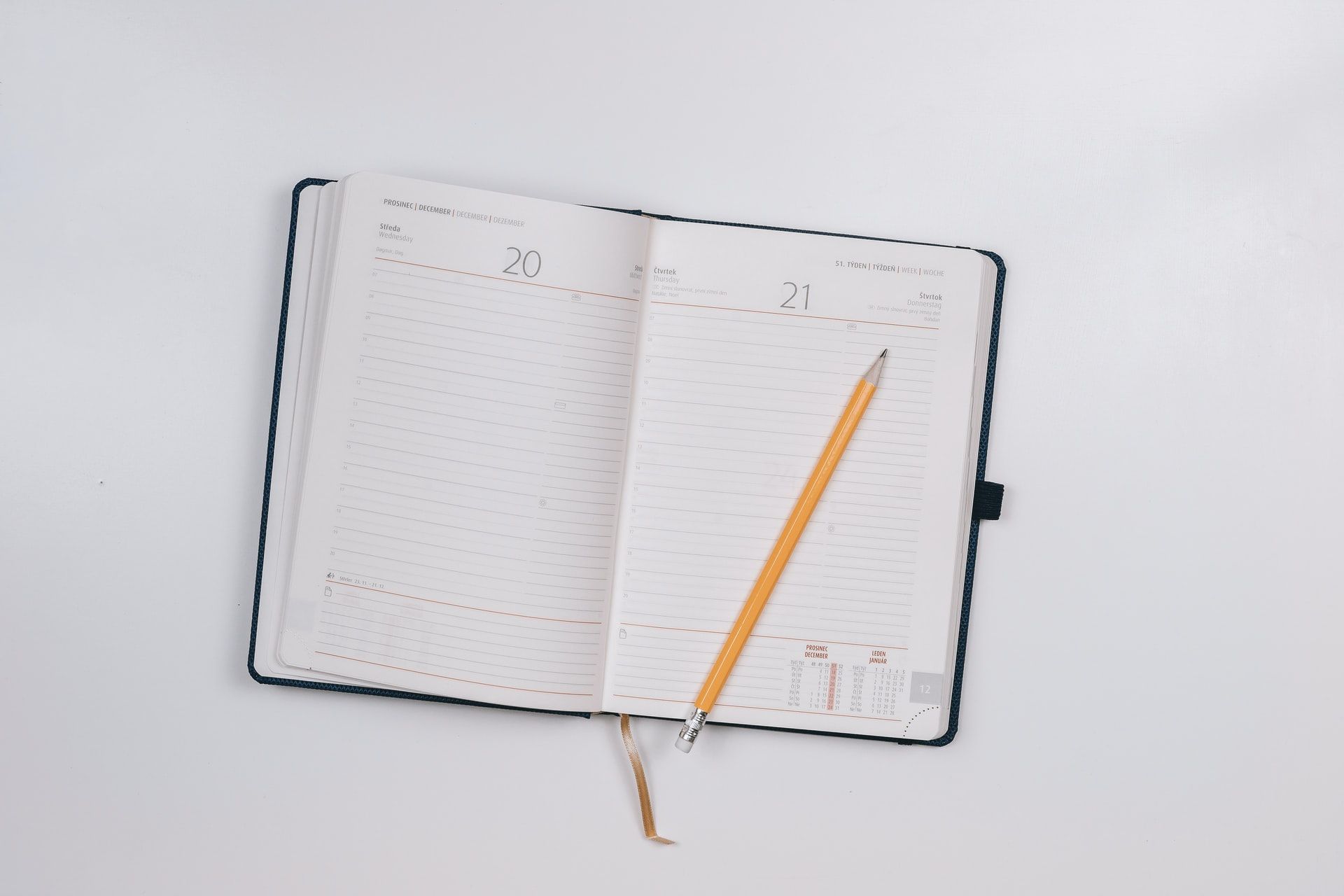The Dollar Value of Your Time and Method of Getting Things Done
Time = Money
The famous quote from Benjamin Franklin rings true more than ever today.
If there’s one thing equal among us all, it’s the number of hours we have in a day, therefore, to have an edge over the next person you want to be in control of your time and not time control you.
So, for those who have ever muttered the phrase, “I don’t have time...” this one’s for you.
We’ll start by looking at strategies throughout the day.
Plan Your Day

To know where to find more time, you first need to know where your time goes.
A method of analysing this is by looking at the day view in your calendar app and plotting in your schedule.
If you’re up at 6 am, in bed by 10 pm, and work a nine to five job, you’ll have around eight hours of free time to be productive.
Most of us take some time to get our head sorted first thing in the morning, so if you’re leaving it until then to decide what needs to be achieved, you’ve already contributed to decision fatigue and time in the day.
Planning your day the night before is the best practice.
List five things you want to achieve before bedtime, that way you’ll hit the ground running and be more productive as a result. The focus should be on completing one task at a time, from most to least important.
This is known as the Ivy Lee method and has been used for over 100 years.
Implement Systems Where Possible

Can you improve the way you work?
I am one to get side-tracked when researching. Say the website I’m reading informs me I need to check out another. I would stop reading, open another tab and look at that website.
This is inefficient because I would often forget I was reading that first page as I’d move on to other things and once realising, waste time having to read back over stuff I’ve already read.
My solution: Have the Notes app open for random notes when working.
If I need to refer to a website or jot down a point, I’ll type into the note, continue reading and follow it up once I’m done.
Use technology to help you stay on track.
Set alarms or calendar events to remind you to stop working if there’s somewhere you need to be and triggers to remind you to do things - such as leaving an envelope to be mailed by your keys for when you walk out the door.
You shouldn’t be relying on your memory for this, as you’ll soon learn.
Be More Efficient

Having systems in place can reduce time, but if your technique is inefficient, you’ve probably neutralised or lost time.
My reading speed was average at best and reading text is one of the most time-consuming aspects of what I do. Thank goodness for the internet (and YouTube)!
Tim Ferris - entrepreneur, author, and ultimate life-hacker, posted this video on how to speed read. By following his basic principle (without counting words or drawing lines in a book), I easily tripled my reading speed instantly.
Even something as simple as folding a shirt can be done a better way.
"If you’re going to do something, you might as well do it the best you can."
My father is a wise man, and this has stuck with me for as long as I can remember.
You don’t want to do the same thing twice.
Have standards and do it right the first time.
Every time.
Make Use of Dead Time

"Work smarter, not harder"
Author, Robert Greene said this about dead time:
"There are two types of time: alive time and dead time. One is when you sit around; when you wait until things happen to you. The other is when you are in control; when you make every second count, when you are learning and improving and growing."
Are you able to do anything on the commute to work, whilst exercising, even in the shower?
I’ll kill two birds with one stone by listening to an audiobook or podcast when folding laundry, cleaning the house or out on a walk, and catch up on YouTube subscriptions whilst cooking.
The Secret to Getting Things Done

“If you do the things you don’t want to do, or if you don’t do the things that you do want to do, then this chapter is for you." - Napoleon Hill
I remember reading Success Through a Positive Mental Attitude as a kid, coming across this chapter and thinking, “This will change my life!”
People are going to try to reinvent the wheel or make it sexy for today’s world, but there’s no secret.
The secret to getting things done is:
"Do it now"
"Just Do It"
Don't procrastinate
However you want to say it.
Take Regular Breaks

You should follow the Pomodoro Technique.
No, you should work in ninety-minute bursts.
Everyone’s got an opinion.
Listen to your body. Know what works for you.
Key points are:
- Move regularly - stand up, stretch, go for a walk.
- Get outdoors - sunlight and fresh air are good for you.
- Learn to switch off - meditate, distract yourself, otherwise, you’re overloading your cognitive abilities.
- If you work with computer screens, look away regularly and focus your eyes in the distance.
- Use the 20-20-20 rule. Every twenty minutes, look at something twenty feet away for twenty seconds.
- Eat and drink properly - what happens if you put the wrong type of fuel in your car?
You don’t need to be all systems go all the time. Do so and you’ll likely get sick, burn out or lose motivation for what you’re doing.
If you have daily commitments like exercise or family time, allow for and stick to them. They should remain non-negotiable.
Getting Things Done® (GTD)
Your memory is fallible and should not be applied to remember things you need to do.
Additionally, if you want to maximise your time, you need to have a system.
David Allen’s book outlining his methodology for time management proved to be life-changing for many people.
“Your mind is for having ideas, not holding them”
Instead of storing all your to-do lists in your head, he formulated a five-step process to handle all your tasks in life.
- Capture - ideas/tasks as soon as you think of them
- Clarify - the steps involved in that task
- Organise - those individual steps from each task by category and priority
- Reflect - on what needs to be done and when
- Engage - get to work
Watch this video to understand the process:
There are flow diagrams to follow on the internet, but it’s easy enough to make the system work for you. Here’s what I did:
I created five to-do lists in my app of choice - Trello and titled them:
- Inbox - where I create tasks as soon as I think of them. If the task takes less than two minutes, I’ll do it now otherwise, break it down by inputting subtasks involved. The task remains in the inbox until broken down and moved to another to-do list. Ideally, you want to have an empty inbox.
- Next - lists the first subtask from each of the tasks I’m working on.
- Projects - lists all tasks I’m working on now or in the near future. Remember, the first subtask of each task I’m working on now is in the Next list.
- Awaiting - if I’m waiting on someone or something to be delivered, the task goes here with an expectation date alarm.
- Someday - tasks I don’t intend to do now. Maybe the near future, maybe when I’m retired - like learning how to perform a service on my bicycle or renovating a room.
Here’s one of my tasks:
My BBQ is filthy and needs a proper cleaning.
I created the task “Clean BBQ” in my inbox.
The subtasks I chose were:
- Research cleaning methods
- Buy necessary items - hose, cleaning agents, etc
- Clean BBQ
Subtask one is in my Next list with the remaining two in the Projects list.
Every day, I’m looking at the Next list.
Once a week (calendar reminder), I’ll take thirty minutes to review everything in case I’ve missed something, need to move, or add more tasks/subtasks.
Reviewing is a “critical factor for success.”
The Dollar Value of Your Time

Holly Butcher wrote a moving letter before she died at age twenty-seven.
You can’t sweat the small stuff and need to value your time because it’s precious and you'll never know when it’s up.
So, the next time, your usually tardy friend is fifteen minutes late, realise they are not giving you the respect you deserve by valuing your time.
Remember, you can always earn more money. You can never earn more time.
So, what is your time worth?
James Clear wrote this piece which gives perspective on how to value your time.
He was faced with the dilemma of deciding whether paying $45 shipping for a $19 bag was worth it versus spending an hour of his time going across town to buy it.
Once you know what your time is worth, you can make better decisions such as:
- Do I wash my car or pay someone to do it?
- Do I pay more for a direct flight or save with a two-hour stopover?
- Do I take this short-term job that will pay now, or work on a project which will pay me more at the end of the year?
To save you time, I found this calculator to do the math for you.
Conclusion
Time is precious, and hopefully, the tips and tools provided here will help you make better use of yours.
Some things in life will be unclear.
This blog (at the time of writing) is consuming all my spare time with no monetary reward, and I have no idea what, if any, that will be.
But it’s something I enjoy, know I am growing as a person, both in learning new concepts and developing writing skills. To me, that is invaluable.
You might find pleasure in taking the time to wash your car or making that trip across town.
Whatever it is, the most important thing to recognise is what is valuable to you.
What is worth your time.



